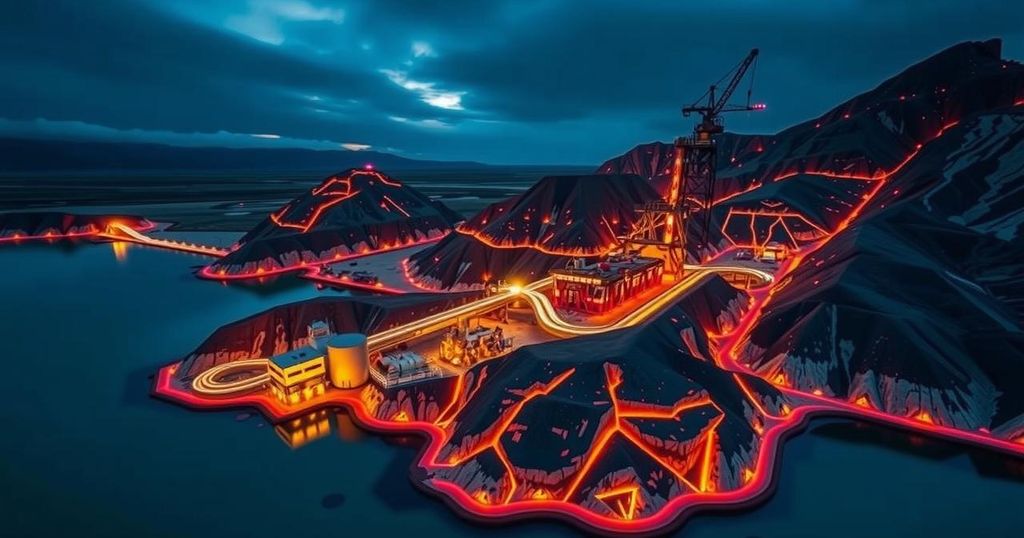Chinese consortium CBC has committed $1 billion to establish lithium extraction plants in Bolivia, retaining a 51% government stake. The Uyuni salt flat project plans to produce 35,000 metric tons of lithium annually, with anticipated technological advancements in extraction. The investment signals the growing significance of Bolivia in the lithium global market, despite potential regulatory challenges in North America.
A significant investment has emerged in the lithium sector of Bolivia as the Chinese consortium, CBC, has formalized an agreement with the Bolivian government aimed at lithium extraction. Under this accord, CBC is set to invest no less than $1 billion to establish two direct lithium extraction facilities in the Uyuni salt flat, a region recognized for its rich lithium deposits. Notably, the Bolivian government will retain a 51% ownership stake in these plants, underscoring its commitment to national resource management.
The strategic location of the Uyuni salt flat places this project in the lithium triangle, an area shared by Bolivia, Chile, and Argentina, which holds some of the world’s largest lithium reserves. According to Omar Alarcon, the head of the state-owned lithium firm YLB, the ambitious plans include a projected annual output of 35,000 metric tons of lithium from the two facilities. He detailed that one plant will yield 10,000 tons of lithium carbonate annually, while the other aims to produce 25,000 tons of battery-grade lithium carbonate.
The technology used in these extraction plants is to be developed by CBC, which will undertake the construction and operational risks independently. This investment marks CBC’s initial construction outlay, reflecting a strong financial commitment toward bolstering Bolivia’s lithium industry. Moreover, the involvement of CATL, a prominent battery supplier in the consortium, signals a strategic move that could enhance the competitiveness of Chinese electric vehicle (EV) suppliers in the North American market. However, uncertainties persist regarding the future of China’s role in this market, particularly in light of potential regulatory changes under the incoming Trump administration.
The investment by CBC in Bolivia’s lithium sector is monumental, given the increasing global demand for lithium, especially for use in batteries for electric vehicles. Bolivia’s substantial lithium reserves place it among the leading countries in the lithium triangle. This investment not only represents a financial influx but also serves to position Bolivia as a notable player in the global lithium supply chain. The relationship between Chinese companies and Bolivian resources has historically been productive but faces challenges from political and regulatory environments in North America.
In summary, the agreement between CBC and the Bolivian government marks a pivotal development in the lithium industry, reflecting a substantial investment aimed at transforming Bolivia’s natural resources into economic opportunity. With a 51% government stake and ambitious production goals, the project could significantly influence the lithium market. However, the future regulatory landscape in North America poses potential risks for the expansion of Chinese companies within that realm.
Original Source: www.teslarati.com






